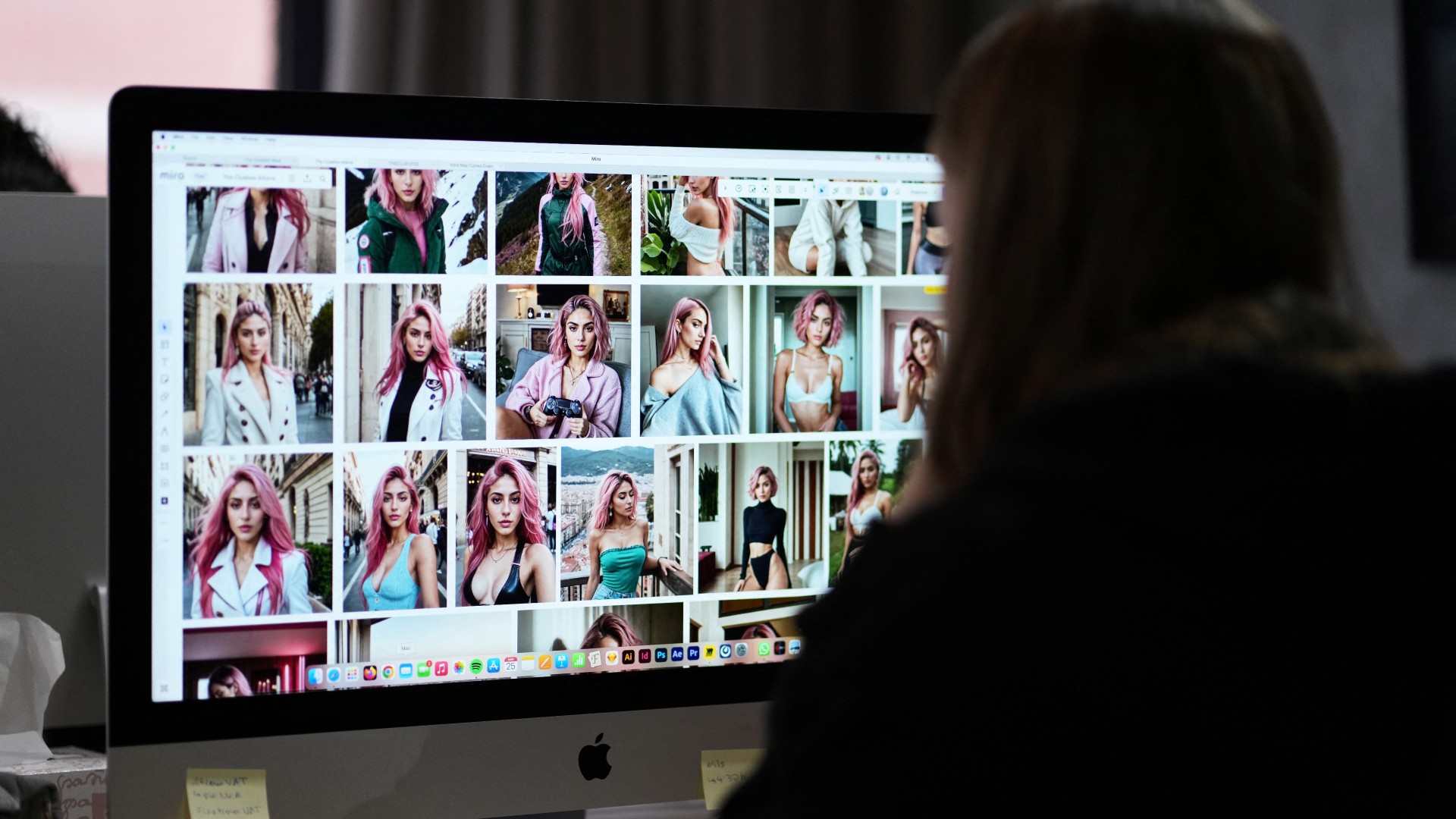The growing dystopian AI influencer economy
AI-generated digital personas are giving human influencers a run for their money


A free daily email with the biggest news stories of the day – and the best features from TheWeek.com
You are now subscribed
Your newsletter sign-up was successful
This month, U.K.-based online creator platform Fanvue announced the top ten finalists of the inaugural "Miss AI" beauty pageant, and none of them are real. The contestants only exist on social media as "photorealistic images of extremely beautiful young women," created using a "combination of off-the-shelf and proprietary AI technology," said NPR. But while the beauty queens are not real, the $5,000 cash prize is.
This pageant is simply the latest platform for influencers created by developers using advanced artificial intelligence. Virtual influencers these days have been featured in fashion campaigns and are even snagging brand deals like their human counterparts. What's more, the recent boom in AI technology has given them an uncanny photorealistic quality. It is now much harder to spot what is real and what is fake.
AI influencers in mainstream media
Virtual influencers have been around for a while, but the advent of AI chatbots and image creators has taken the possibilities to a new level. As their presence on social media grows, they are infiltrating the mainstream and reaching a larger audience. An April report by The Influencer Marketing Factory found that 50% of participants followed at least one AI influencer, and 22% were at least somewhat familiar with the virtual creators. Among those following the digital influencers, 49% said they followed them "out of curiosity about the technology and creativity behind these creators," while 36% said they followed them for entertainment, said Business Insider. Participants also said they followed faux influencers to "learn about new products and services and to escape from reality."
The Week
Escape your echo chamber. Get the facts behind the news, plus analysis from multiple perspectives.

Sign up for The Week's Free Newsletters
From our morning news briefing to a weekly Good News Newsletter, get the best of The Week delivered directly to your inbox.
From our morning news briefing to a weekly Good News Newsletter, get the best of The Week delivered directly to your inbox.
Lil Miquela, a.k.a. Miquela Sousa, is one of the more prominent photorealistic AI-generated influencers; she has amassed over 2.5 million followers on Instagram since her debut in 2016. She has also appeared in ads for companies like Chanel and Givenchy and was named one of TIME Magazine's "25 Most Influential People on the Internet" in 2019. With AI becoming more accessible, companies are creating digital personas to vie for brand deals. Luxury fashion accessory brand Coach's recent "Find Your Courage" campaign featured virtual influencer Imma traveling through digital worlds alongside real celebrities, including rapper Lil Nas X, actress Camila Mendes, South Korean rapper Youngji, Japanese model Kōki and Chinese actress Wu Jinyan.
The developers behind the AI influencers are not "finding success in a vacuum," Business Insider said. Many of them are gathering in online groups on platforms like Discord to share "resources to fine-tune their art" and "marketing tips to help expand their reach and improve their monetization." Some of these creators are looking for a way to make money, while "some of us are more in an artistic objective," the creator behind AI model Aurora Shogun said to the outlet.
A 'symptom of a larger issue'
The rising popularity of AI-generated influencers may be creating a new lane of opportunity for creative expression. Still, it also raises concerns about the potential to use these influencers to spread misinformation or deceive followers, said Claire Leibowicz, the head of the AI and media integrity program at the nonprofit Partnership on AI, to ABC News.
While the influencers may seem harmless as they post about innocuous products like lip gloss, "we don't want that same technology to be used to cast doubt on much more," Leibowicz said.
A free daily email with the biggest news stories of the day – and the best features from TheWeek.com
Parents have also taken note of the growing popularity of AI influencers, many of whom are so lifelike that they could pass as real people. Over 12,000 concerned parents signed a petition urging TikTok CEO Shou Zi Chew to label AI-generated influencers on the platform clearly. These digital personas are "creating extreme and utterly unattainable beauty standards," the petition said. Most kids "won't know the people they aspire to look like aren't real people at all."
This latest wave of influencer culture is just "indicative of the larger moment we're in," said Shelby Knox, the campaign director of the nonprofit ParentsTogether, who sponsored the petition. Parents are overwhelmed, and social media has "become sort of a crisis for young people in this country," Knox said.
Human influencers have faced similar criticisms about their impact on impressionable followers. "It hurts that society values one specific standard of beauty, whether on a human being or some AI creation," said Wired. In a world where people already follow attractive human influencers that "they'll never meet or form a meaningful connection with," an AI beauty pageant like Fanvue's is a "symptom of a larger issue, not a harbinger of impending doom," Wired added.
Theara Coleman has worked as a staff writer at The Week since September 2022. She frequently writes about technology, education, literature and general news. She was previously a contributing writer and assistant editor at Honeysuckle Magazine, where she covered racial politics and cannabis industry news.
